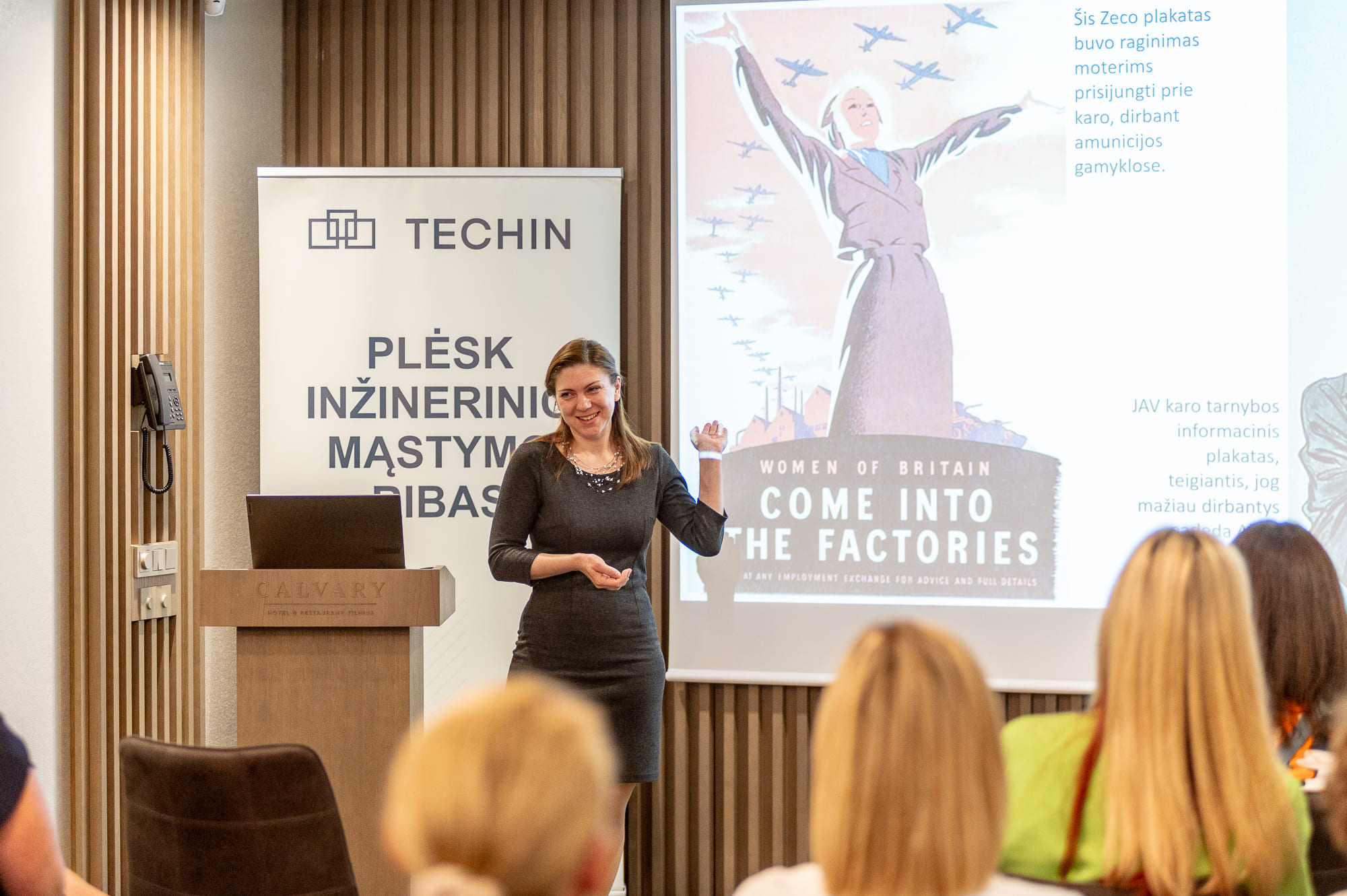
On the topic of discussions “Resilience in the Age of Disinformation”, almost half a dozen members of Vilnius Technology and Engineering Training Center (hereinafter – TECHIN) and Vilnius city teachers’ community invited to summer trainings. How to respond to this topic in the educational process? What tools and methodological tools to use? In what forms to develop critical thinking not only of students, but of educators? All of this has been talked about, sharing theoretical and practical advice and testing playful learning experiences.
Invites you to join the fight against disinformation
The initiative to focus on the management of disinformation content in the educational community was born in seven organizations of the Erasmus+ project “JUIBAD (Join Us In the Fight Against Disinformation” 2020-1-ES01-KA226-SCH-094785) in seven countries of the European continent. The cooperation has created an intellectual product in which Lithuanian educators, teachers and their students can find useful informational content in various languages, including Lithuanian educators, teachers and their students: information studies of the project partner countries on the national and educational community’s ability to face disinformation threats, a methodological e-publication – a guide for educators about liars, and a MOOC course with a lot of tasks and video trainings.
The event, organized as a final benefit and product multiplier event, took place in Vilnius on 21 July 2023.

(un)resilience of educators: how to develop critical thinking?
One of the lecturers of the training – TECHIN methodologist Toma Grabauskaitė – provoked colleagues: “It is no coincidence that in my report I chose the examples that sounded in the media: gay-cannibals in a moral education lesson, an anonymous person presenting himself as a teacher in closed groups, who urged not to vaccinate and not to test children for a general conspiracy, and an educator who came with carnations at the tank in the Cathedral Square. The latter cases were made public because of the courageous students who did not want such an education, colleagues who felt alien shame, social citizens. All of us – teachers, the educational community – must understand how important and responsible our role is in developing critical thinking.”
The educationalist emphasized that the sensitivity of educators to information is especially relevant these days. “Lithuania’s information field is electrifying, we are shaken by the crisis after the crisis, which is a very favorable ground for spreading disinformation and false narratives, therefore, media and information literacy is also the direction of our learning as a colleague. It is a difficult job to check information – according to Eurostat, only 11% of Lithuanians do it, although they say they recognize disinformation, public media literacy is also quite low, and media and information literacy education is fragmented.”

According to the rapporteur, the challenges are obvious, so the responsibility of the educator, manager and responsible citizen is mandatory in this context. “If we have already committed ourselves to conveying the message, teaching others, let us not be lazy to scrutinize the information carefully. The examples I have already mentioned, which have been reported in the media, show that in the educational community, too, it is difficult to avoid false, manipulative narratives, radically dissenting views, as a result of which conspiracy theories sometimes do not remain in the kitchens of the house – they also sound in the classrooms or even become educational content. This is a dangerous phenomenon, believes the techin methodologist.
During the event, presentations were read, thanks to which the participants got acquainted in detail with the context of the implemented project, the stages of implementation, the created products, their benefits were presented in detail, and demonstrations of use were presented.

There was also a presentation on the topic of the development of Creitic thinking, which examined in more detail the situation of Lithuania in the context of liars and disinformation, the development of teachers’ critical thinking, and provided practical advice to the educator in choosing information sources and creating educational content.
Participants of the dissemination event formed practical skills and strengthened critical thinking abilities in practical activities. With the help of the game of escape boxes, a practical game “How to protect yourself from dangers lurking on the Internet?” was organized. All participants were involved in this practical activity. Taking into account the reviews, it can be said that everyone who participated in the event and activities benefited, gained additional knowledge and skills, learned about the tools and tools developed, and are determined to use this information in their daily activities.











 Disclaimer: "Funded by the European Union. Views and opinions expressed are however those of the author(s) only and do not necessarily reflect those of the European Union or the European Education and Culture Executive Agency (EACEA). Neither the European Union nor EACEA can be held responsible for them."
Disclaimer: "Funded by the European Union. Views and opinions expressed are however those of the author(s) only and do not necessarily reflect those of the European Union or the European Education and Culture Executive Agency (EACEA). Neither the European Union nor EACEA can be held responsible for them."